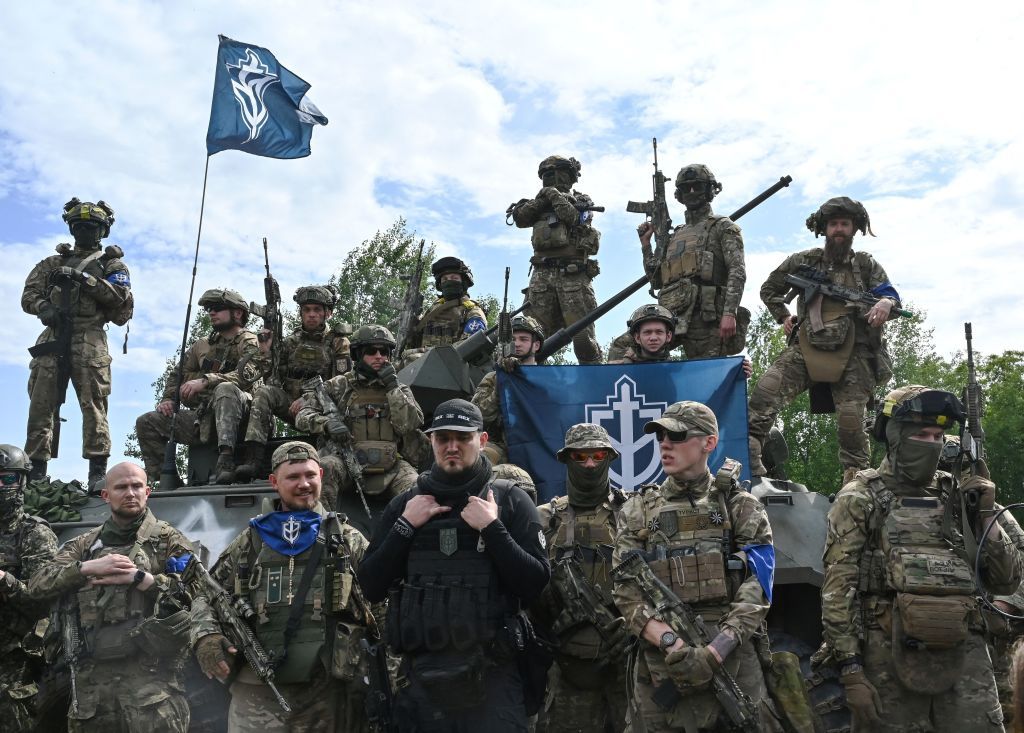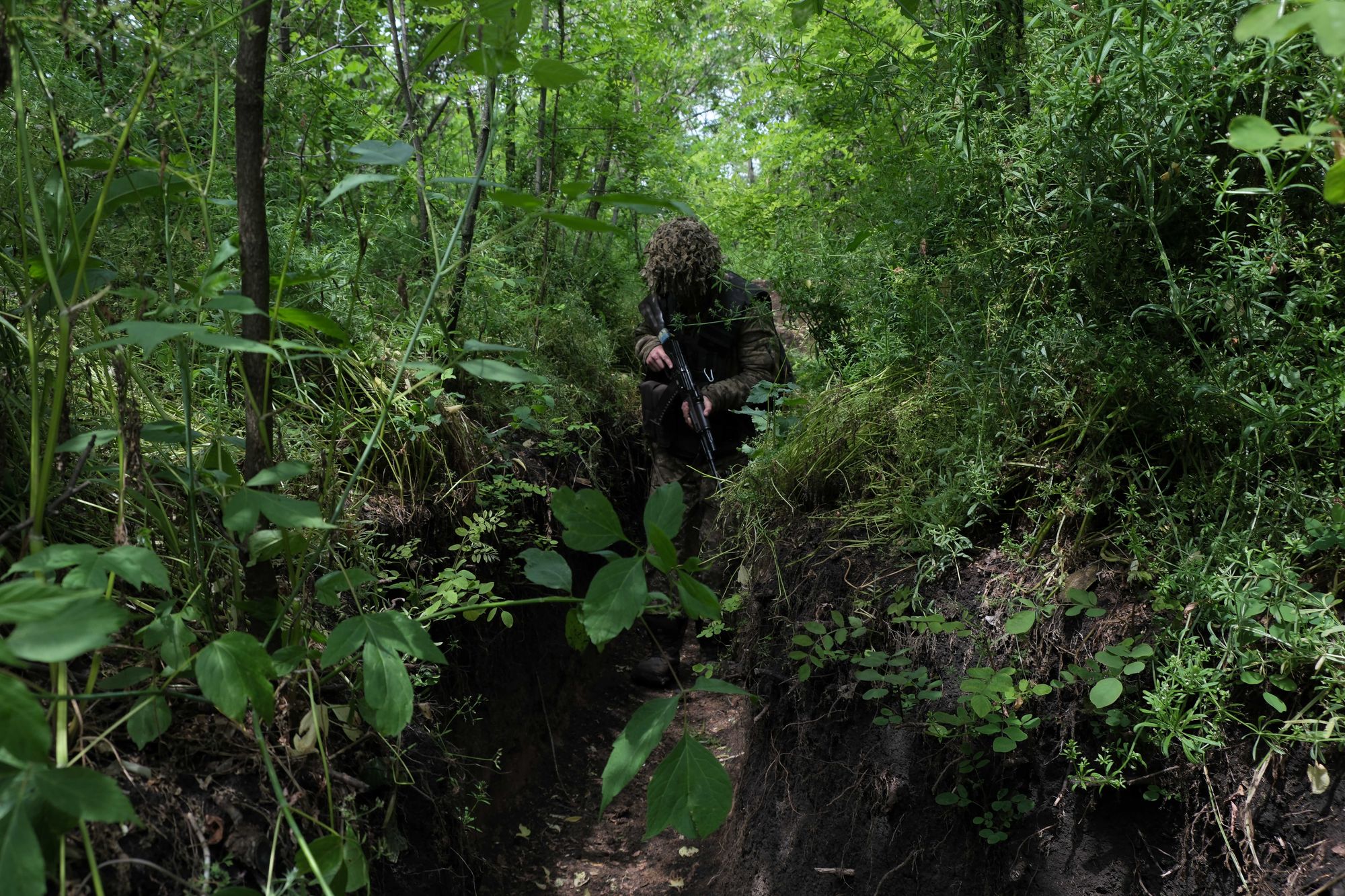Burkovskyi, Tarasiuk: Do Russian anti-Kremlin insurgents pose a real threat to Putin’s regime?

The Kremlin’s push for a “long war” against Ukraine may have a snowball effect on domestic insurgency within Russia.
In the early morning of June 1, the Russian Volunteer Corps (RDK) and the Free Russia Legion (LSR) crossed the Russian border from Ukraine once again. They engaged in combat with Russian forces in Shebekino, a town in Russia’s Belgorod Oblast, causing civilians to evacuate.
This was part of a sequence of operations conducted by Russian anti-Kremlin armed groups in the past weeks. Their stated goals, which have garnered significant attention, are to establish a “demilitarized zone” on the border with Ukraine and to initiate a struggle against the Kremlin’s rule.
The trajectory of such conflicts and the growing number of armed groups made up of current and former Russian citizens are an undeniable trend within the context of Russia’s full-scale war.
The key question is whether these incursions are just Ukrainian military-led hybrid measures aimed at distracting and forcing Russian units to pull from Ukraine, or whether we are witnessing the emergence of radical insurgency within Russia and a new, domestic front that can destabilize Putin’s regime.
In a candid interview with prominent Russian opposition figure Mark Feygin, RDK leader Denis Kapustin claimed that all actions carried out by his unit on Ukrainian soil were coordinated with Ukraine’s military command structure.
This revelation came immediately after the RDK’s inaugural incursion into Russian territory in February, where they briefly ventured into a settlement along the Ukraine-Russia border before retreating.
The movement has been active since the summer of 2022 and is comprised primarily of volunteers who are Russian citizens. Notably, many of RDK’s members are Russian activists who sought refuge after the annexation of Crimea and the start of Russia’s war in Donbas in 2014-2015. RDK positions itself as a successor to these aims as an informal alliance of Russian citizens.

While RDK and LSR’s activities are indeed conducted at an unprecedented scale, they are not the only paramilitary organizations that have attracted Russian citizens to challenge Putin’s regime, even before the full-scale invasion.
Back in 2015, Andrei Kuznetsov, a relatively well-known Russian opposition blogger who had emigrated from Russia to Ukraine, boldly announced the formation of the so-called “Russian Insurgent Army.” This small militant group claimed responsibility for a series of incidents within Russia at the time.
Since 2014, at least two Chechen volunteer movements have emerged – a battalion named in honor of the Chechen Republic of Ichkeria’s first president, Dzhokhar Dudayev, and one fighting within Ukraine’s Armed Forces and named after Sheikh Mansur, a resistance leader against Russian imperialism from the North Caucasus. Members of the Chechen diaspora, as well as the exiled government of the Chechen Republic of Ichkeria, formed at least two other battalions within Ukraine’s Armed Forces – the “Separate Special Purpose Battalion” was created under the leadership of Akhmed Zakayev, the exiled prime minister of the Chechen Republic of Ichkeria, and a battalion named after Hamzat Gelayev.

The growth of resistance movements within Russia, both actual and nominally formed, has been particularly noticeable since 2022.
In the fall of 2022, for example, the “National Republican Army” made headlines after it claimed responsibility for a car bombing that killed the daughter of Russian neo-Nazi and neoconservative ideologue Alexander Dugin, Daria Dugina.
Another notable movement that has emerged since February 2022 is “Stop the Wagons!” Operating within Russia, this group employs non-lethal sabotage tactics that focus specifically on disrupting the transport of Russian equipment, fuel, ammunition, and other supplies to Ukraine through targeted railway diversions.
Russia’s ethnic minorities have also been represented in resistance movements. The “Bashort Company” is a group comprised of emigrants and prisoners of war from Bashkortostan. The “Imam Shamil Battalion” was declared by Dagestani emigrants. The “Turan Battalion,” headed by Kyrgyz national Almaz Kudabek, is partially comprised of emigrants of Turkic origin originally from Russia.

There are also radical left and anarchist organizations that have joined the armed resistance against the Kremlin. Such groups have employed tactics such as damaging railway tracks, burning transformers, setting fire to military registration offices, cyber attacks, and countering Russian propaganda narratives on social media.
The “Fighter Anarchists” group was announced in 2018, although it only took direct action against Russian authorities after Russia’s full-scale war began – they established the “Revolutionary Anarchist Foundation” in May of 2022. Since then, they have mainly engaged in sabotaging Russian railways.
The “Exposition of Revolutionary Anarchism,” another radical ultra-left organization operating within Russia, mainly undermines logistics. Meanwhile, the movements “Pravo Sily” (“Right of Power”) and “Atesh,” reportedly composed of Crimean draftees into the Russian army, have also been declared.
Overall, it can be said that there are sources of serious domestic insurgency in Russia. The diversity of the groups’ ideological platforms, variety, and geography speak for the genuity and independence of these anti-Putin groups.
Ukraine benefits from the weakening of the Kremlin’s control of the country, but it lacks the resources to stand behind acts like setting fire to military offices in the Russian hinterland or constant railway diversions beyond the immediate proximity of the warzone.
However, it is difficult to assess the real scale of domestic resistance in Russia. Only a small part of the mentioned movements’ actions are reliably known. A considerable portion of these groups exist without confirmation of their activities, and much about their leaders, public activity, and foreign representation is unknown.
It is also hard to confidently determine the number of domestic Russian insurgency units, as well as the total number of people involved. There are likely only a few thousand people at best, while the combat units are maybe a few hundred people total.
On the other hand, the attractiveness of private military companies among Russia’s male population, increasingly dissatisfied with the living conditions and resentful toward Putin’s corrupt ruling clique, indicates a growing potential for instability.
It is likely that trained and armed men, some with combat experience or without loyalty to any Russian authority, whether they be Putin or Prigozhin, may defect to such opposition groups. The RDK raids in Belgorod Oblast have already shown that it could be much easier to wrestle control of Russian cities from the incompetent and corrupt government than to survive assaults in Donbas.
Editor's Note: The opinions expressed in the op-ed section are those of the authors and do not purport to reflect the views of the Kyiv Independent.















